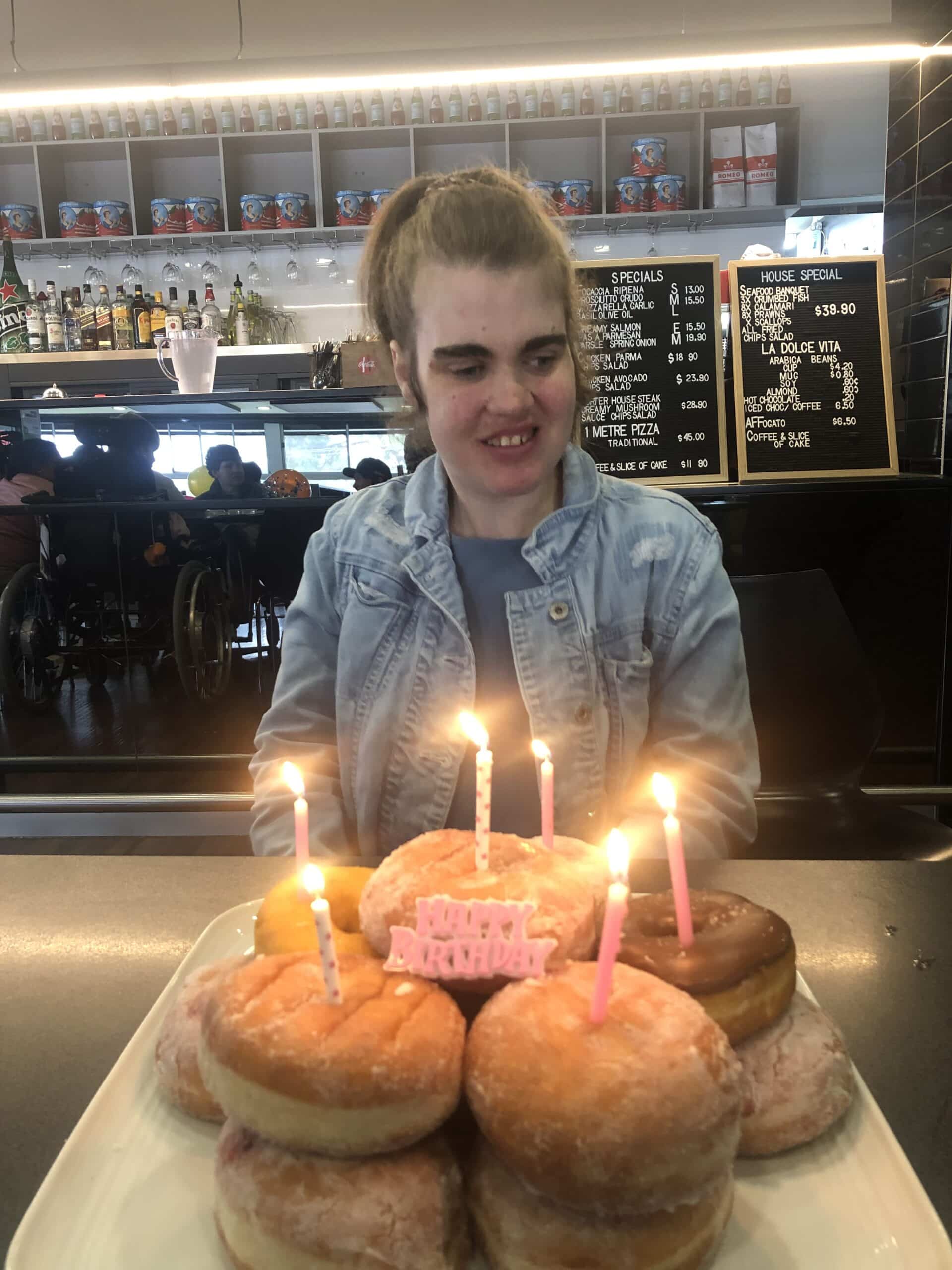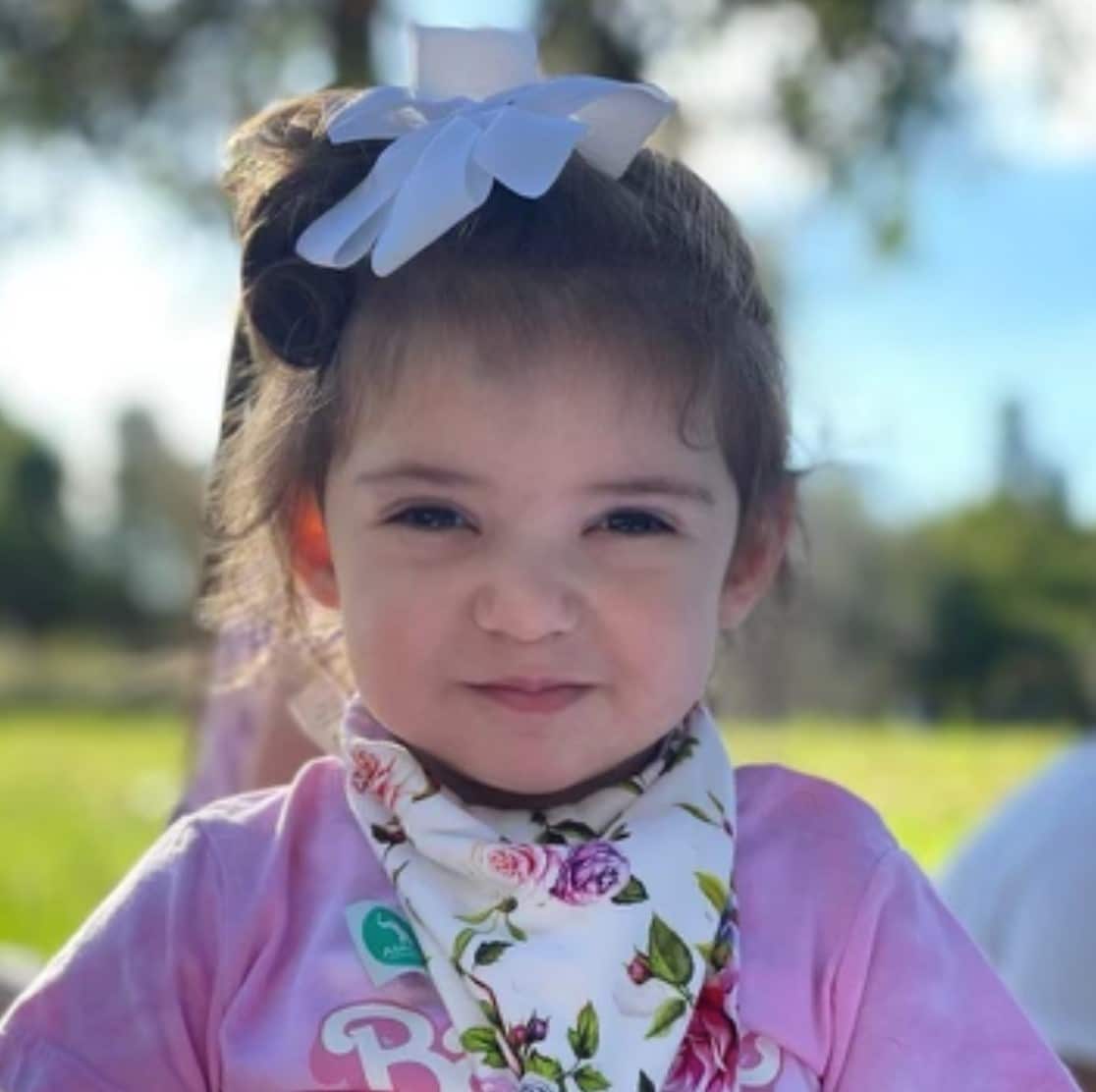Asta
Based on an interview with Heidi Paech, Asta’s mum (QLD, April 2024)
Heidi Paech lives in Windaroo, Queensland, midway between Brisbane and the Gold Coast. She is mum to three gorgeous girls, Harper, aged 10, Asta, 7 and Gigi, the baby of the family, who is just 2 years old.
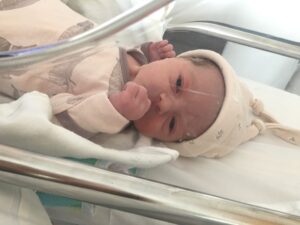
Heidi and her husband Brad had always wanted three children. Her pregnancy with Harper was straightforward and while birth is, of course, never a breeze, everything went well. Some might call it a textbook pregnancy and birth. So, the couple thought they knew what they were in for when Heidi fell pregnant with Asta.
However, during their regular 20-week morphology scan, they learned that their baby’s brain had some anomalies. Many tests were done, including amniocentesis and a fetal MRI, but the couple got no firm answers.
Then, at about 24 weeks, the doctors discovered rhabdomyomas on baby Asta’s heart. The couple were quickly given the diagnosis of Tuberous Sclerosis Complex (TSC). Heidi says they were both a little sceptical, as they didn’t see how the medics could be so sure without genetic testing. However, the maternal fetal medicine team at the Mater Hospital referred them to a TSC specialist neurologist at the Queensland Children’s Hospital, who confirmed that it was more than likely their little girl had TSC.
Heidi says: ‘It was such a devastating time. I remember feeling extremely scared and disconnected from my pregnancy. I was in bed crying for days on end. I was in total fear of what was to come. Brad was equally as scared and worried. Like most other families we were told not to Google TSC and of course we did! Google seemed to only share the most awful and scariest stories, but we were lucky that our wonderful neurologist kept us on track and shared stories of hope. We were also given an information pack and our neurologist’s mobile number so that we could call at any time with any questions we had. The medical team at Queensland Children’s Hospital has remained an amazing, major support in our TSC journey.’
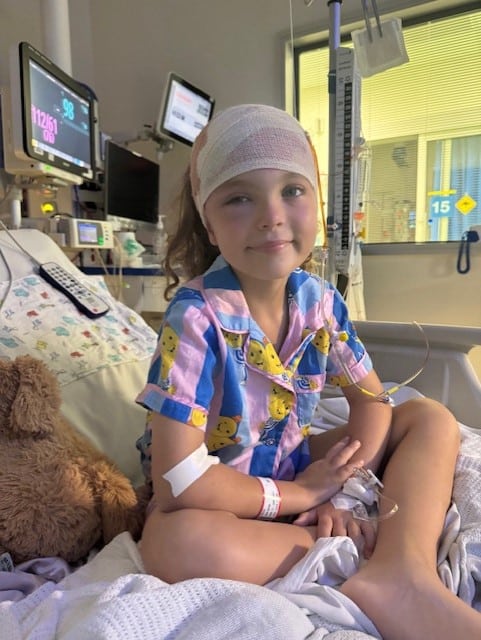
In her short 7 years, Asta has encountered many health hurdles and the family has had to make difficult decisions. Heidi recalls: ‘Asta had up to 40 uncontrollable seizures per day, some visible focal and absence seizures and others just consistently in the background. Unfortunately, the many combinations of up to 4 anti-epileptic drugs at a time weren’t able to control them. In the end, the only real option open to us was brain surgery. That is one of the scariest decisions we’ve ever had to make.’
Asta had 2 brain surgeries for her TSC-related epilepsy and, thanks to that surgery, and continued anti-epileptic medicine, she now has seizure control.
Heidi admits that she finds the unpredictability of TSC one of the hardest things to deal with, and feels that the condition takes away any notion you have of being able to control life. Just last year, the entire family were due to take a much deserved holiday, visiting relatives in Germany. Their flight was booked for 12 December. Then, on 8 December, during a routine appointment, Asta’s ophthalmologist noticed a build-up of pressure and, sure enough, 2 days later an MRI revealed that the SEGA in her brain had grown incredibly rapidly over the previous 3 months. It came as a huge shock; the family had to cancel their holiday plans, and, instead, Asta underwent another neurosurgical operation to remove the SEGA.
Thankfully, Asta responded well to the surgery and bounced back within a week or so. She is now on anti-epileptic drugs and everolimus, which will hopefully shrink the residual tumour and keep the SEGA at bay. As Heidi says, ‘it’s quite a yucky medicine for her to be on, but we don’t have much choice. It’s an immune suppressant so we always worry about her getting sick.’
You are your child’s best advocate. Speak up when they cannot. You know them best. Seek help and support from other families living with TSC. No case is the same and it truly does affect everyone so differently, so reaching out to people can really help with information and understanding.
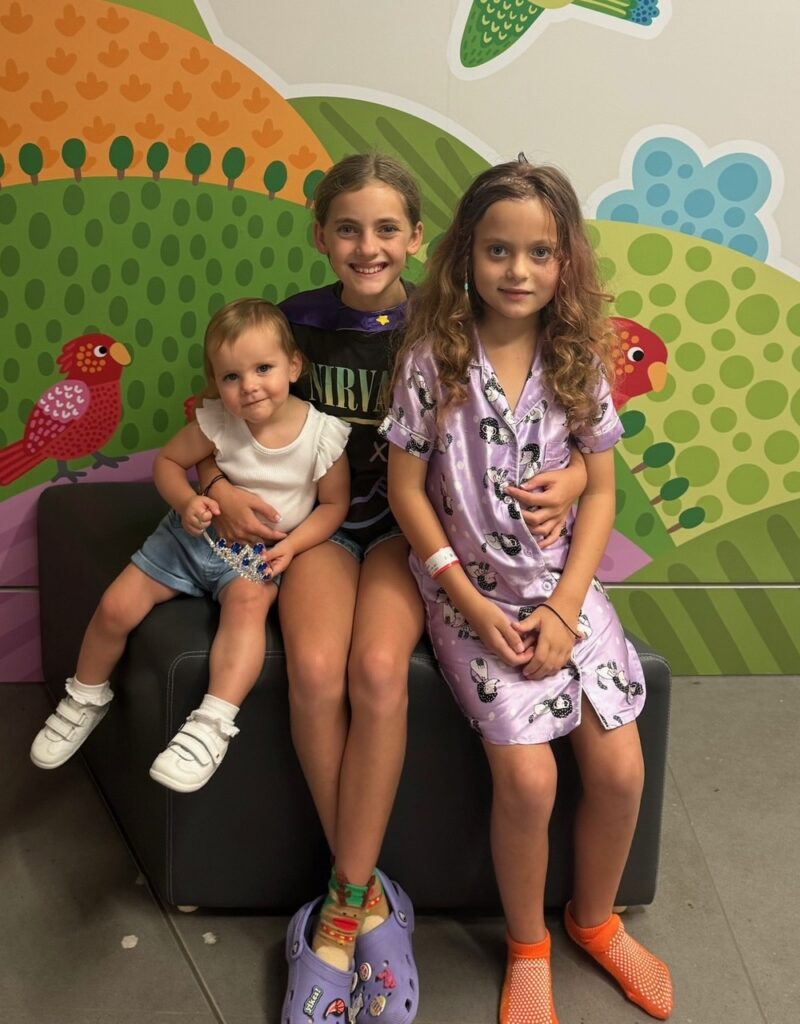
Heidi and Brad know that having a child living with TSC can be hard on the rest of the family: ‘we sometimes forget how difficult it is for the siblings to go through it all too. It can be extremely tough, but the flipside is that it can teach them many valuable life lessons.’
Heidi knows that Harper is very aware of Asta’s TSC and her brain surgeries. Harper loves Asta enormously and accepts everyone, but struggles at times and has needed support to talk through the myriad issues involved in having a sibling who lives with disability. As Heidi comments, ‘TSC takes its toll on the whole family’s mental health and wellbeing.’
Heidi and Brad had to make the tough decision whether to go ahead with their plan to have a third child. Genetic testing revealed that Asta’s TSC is not inherited and was due to a spontaneous mutation, meaning that their chances of having another child with TSC were just like any other couple. After much soul-searching, they decided to leave things to fate. Gigi is the result of that decision. Like Harper, she does not have TSC.
Heidi describes Asta as: ‘a typical 7-year-old in many respects. She can be stubborn and it can be tough to deal with some of the behavioural problems that come with her neurological condition. Her language is quite delayed, it can be a challenge at times as she is quite repetitive and can often tell you the same thing 5 or 6 times in a day.
Asta loves to swim, she loves the beach and she just has a really cool personality. We are lucky to have a fun little girl, full of love and character who is always making us laugh. She really loves life and finds joy in the smallest of things and we think that’s something we can all learn from.
Whilst Asta knows she has TSC (‘spots on her brain’) and has had brain surgeries, she doesn’t understand that she has a disability. Asta really does bring so much, love, laughter and perspective to all our lives.’
Heidi doesn’t gloss over the fact that life with TSC is often tiring and extremely tough, but, just like Asta, she tries to remain resilient and positive: ‘for us, it’s a constant round of hospital appointments, therapies all week for global developmental delay and intellectual disability, educating doctors on this rare condition and advocating for inclusion through schooling. But it’s something we’ll continue to do for as long as we need to, in order to give Asta the best life possible. It’s taken me a very long time to get here, but I’m at the stage where I do really try to look for the silver linings throughout the journey.
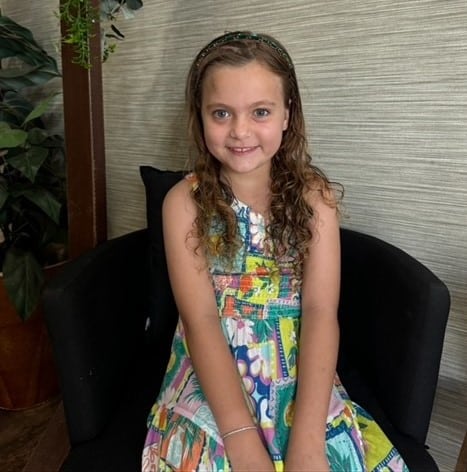
We live each day as it comes, and we’re reminded that every little life is precious and unique. We are managing with the support of our family, friends, our medical team and the TSC community. Without their love and acceptance, it truly would be a lonely and challenging life.
My advice to other families is, “You are your child’s best advocate. Speak up when they cannot. You know them best. Seek help and support from other families living with TSC. No case is the same and it truly does affect everyone so differently, so reaching out to people can really help with information and understanding”. As a family we’ve used many of the TSA resources online for family members, educators and therapists, to help them understand Asta and TSC.
I love that we are able to be ambassadors for the ‘Light the Way’ campaign and raise much-needed funds to have services like the TSA nurse available when we need it. By sharing our story, our hope is that families receiving a diagnosis of TSC can feel a little less scared and know that there is support out there and that you will get through it. Hopefully, with continued early screening and intervention, we can start to find more of the ‘less scary’ stories when searching TSC on Google.’
Heidi, Asta and the rest of the family send much love and strength to all their fellow families living with TSC in their lives.
You can also see Heidi talking about Asta’s story in this video.

